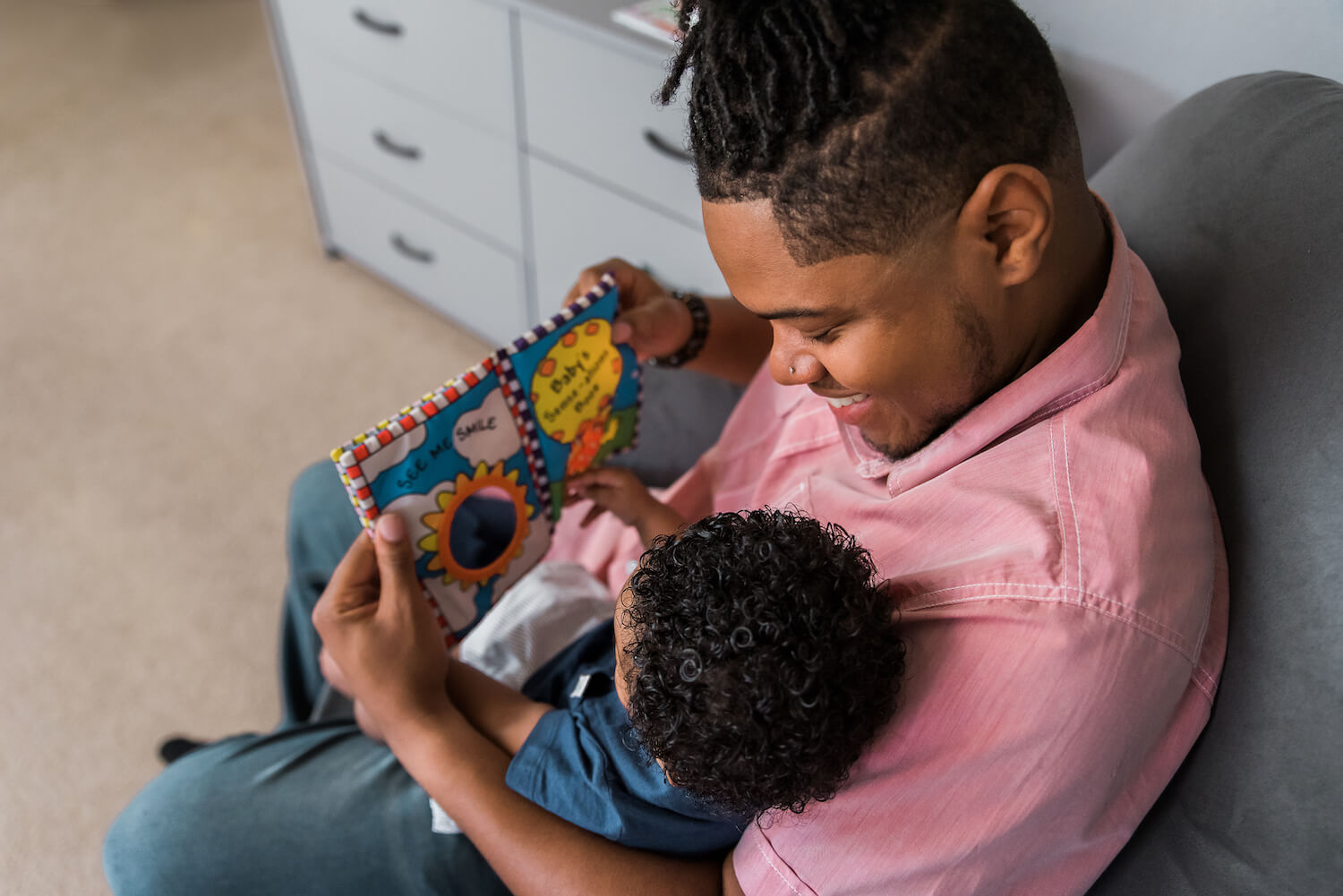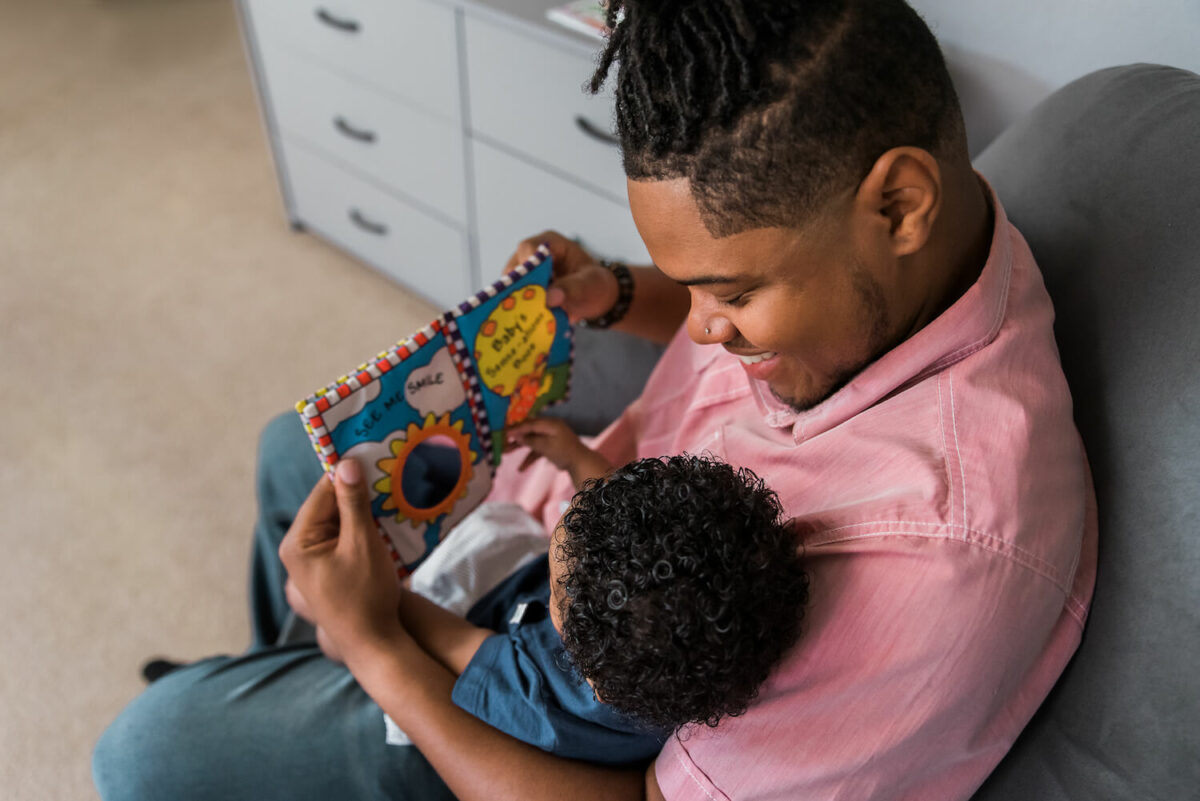
Want to Help Your Child Learn? Have Some Fun
If there are young children in your life, play is probably happening all the time. It happens at joyful times (think putting soap bubbles on your nose during bath time) and at less helpful times, such as when your child’s stuffed toy suddenly needs an imaginary snack, right at bedtime. We can’t help you with the imaginary snack, but the good news is that all that play is great for your child’s developing brain. There is a remarkable amount of research out there on learning through play. This is research done by serious people with PhDs, about things like whether babies learn more after something surprising happens (they do!)
All this serious research about play is how we know that it’s the best way for young children to learn, and also how we know that different kinds of play can help children build different types of skills. Researchers have even gotten into the differences between free play (picture your toddler, twenty minutes into a pretend battle with her shadow), and guided play, when grown-ups join in to help guide the play and add learning to the mix.
Both types of play are good for babies and young children, and they learn different things from different types. And (this is excellent news) none of it has to be hard. Research is showing that caregivers don’t need to set up an elaborate area full of toys that claim to be educational (simpler, open-ended toys like blocks can do the job). Instead, caregivers can think about the everyday moments they are sharing with their children and add a little bit of learning to those moments.
So, if you’re ready to get serious about play, here are some helpful (and science-backed!) strategies.
Free Play
Free play is when you step back and let the child do the playing. Take a break. Eat a snack. Do the Wordle. Rest assured that giving your child time to play (while keeping an eye on their safety) helps them build important life skills like how to maintain their focus, figure things out, and think flexibly about problems. Good for you! Your child is becoming a more well-adjusted member of society, all while you take a few moments for yourself. Resist the urge to over schedule them or cut their playtime short. You’re doing a great job.
Guided Play
This is where you come in. Guided play is the sweet spot for young children to learn specific new skills and information. It’s the zone where they learn the most. Guided play means the child is still leading the play, but their caregiver is adding to it with suggestions that prompt curiosity (“I wonder what would happen if we added water”), open-ended questions (“Why do you think the dirt is all gooey now?”) and some joyful silliness (“How did mud get on your nose??”). Guided play can also happen while doing routine chores like cooking and cleaning or grocery shopping, and it only has to take a moment. Some great recommendations for guided play using “everyday JUNK” are available here.
Games
As children get a little older, you can introduce more structured games with turn-taking and rules. Games can provide opportunities for guided play within them and for quality time together. Plus, high-quality games can support children in learning words, number concepts, and important social skills like how to cope with the disappointment of losing (let them lose!). Make sure to pick games that are appropriate for your child’s age and skill level.
Direct Teaching
This isn’t really learning through play, but it’s important to acknowledge that not every skill can be taught through play. Most can! But a child learning to tie their shoes or fold a shirt may need you to just explain the steps and demonstrate, instead of asking a bunch of open-ended questions. That said, it can help to take notice of how often you are using direct teaching, and whether you’re using it for things that could be taught through guided play, instead.
Find Joy
Most importantly, have fun yourself! Your child can tell if you are having fun, and will get more benefit from play if you seem excited. That means going easy on yourself and not forcing games or interactions that you don’t enjoy. You also don’t have to engage in guided play at every single opportunity if you’re tired or you’ve had a hard day. Instead, find things you and your child both like! That can mean introducing them to music you love, your favorite sport, painting Warhammer miniatures, or cooking a family recipe. Sharing hobbies and interests with your child builds a foundation for quality time together, that will pay off later when you have a willing partner for pickleball.
For more opportunities for your little one to learn through play, check out our blog on New Mexico PreK.

